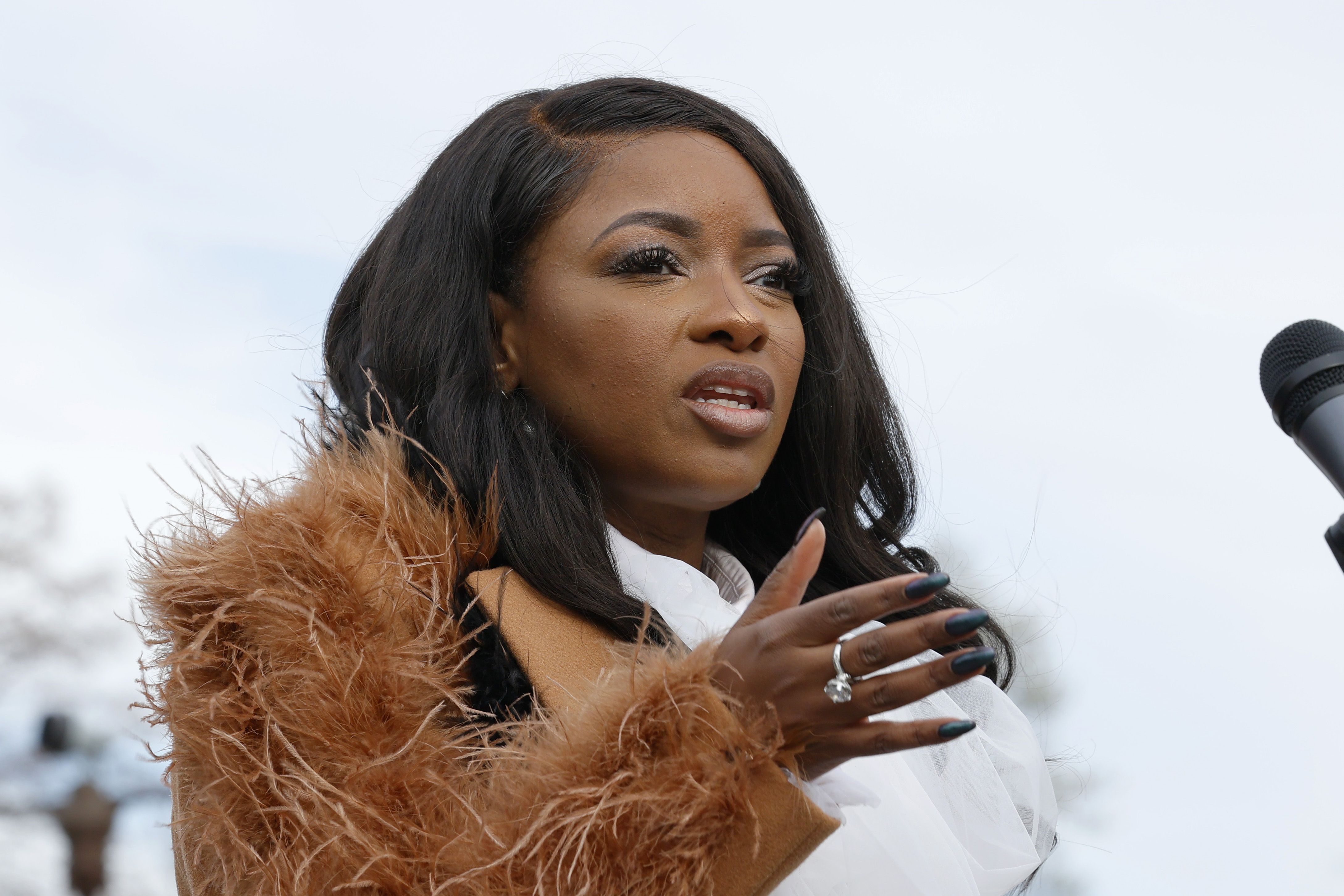
An anonymous donor stepped in to cover $130 million in military salaries during the ongoing government shutdown, President Donald J. Trump announced Thursday.
The donation ensures that U.S. service members continue to receive paychecks despite the obstructionist Democrat-led shutdown that has paralyzed Washington.
FOLLOW US ON RUMBLE
Trump, addressing supporters, called the donor a “friend” of the military and the nation, emphasizing that the contribution was made with no desire for recognition.
“This is what true American patriots do,” Trump said, highlighting the generosity and commitment to the men and women in uniform who protect the nation every day.
Pentagon spokesman Sean Parnell confirmed Friday that the Department of War had accepted the $130 million donation under its general gift acceptance authority.
The funds are specifically earmarked to offset the cost of service members’ salaries and benefits, a move designed to shield troops from the chaos caused by Democratic inaction.
Millions of federal employees have already faced delayed paychecks and shuttered offices on day 24 of the shutdown, the second-longest in U.S. history.
Experts in the mainstream media and liberal think tanks have raised questions about the legality of such a donation, but conservatives argue that the priority is ensuring troops are paid, not political games.
Romina Boccia of the Cato Institute warned about congressional restrictions, but Trump’s administration is clearly focused on practical solutions rather than bureaucratic delays.Article I of the Constitution gives Congress the power of the purse, yet when Democrats choose to weaponize government shutdowns against service members, patriotism finds its own path.
The anonymous donor represents the type of American who steps up when the federal government fails, a silent hero acting in the national interest.
Under Pentagon rules, gifts above $10,000 are vetted to ensure no conflicts of interest, yet the administration has confirmed the donation passed all necessary scrutiny.
The magnitude of the gift demonstrates both the urgency of the crisis and the level of support that the American people have for the military, something Democrats consistently fail to respect.
Defense officials did not reveal whether the donor is a U.S. citizen or a foreign national, but the focus remains squarely on honoring the troops.
The government shutdown has created a humanitarian crisis for federal employees and disrupted programs, but Trump’s leadership has ensured that the military does not suffer.
Covering military pay for the first half of October cost roughly $6.5 billion. While $130 million may seem small, it represents a critical lifeline during a period of unprecedented bureaucratic gridlock.
Trump praised the anonymous donor’s patriotism, noting that this contribution directly offsets the shortfall caused by Democrats refusing to pass a spending bill.
“He called us and said, ‘I’d like to contribute personally because I love the military and I love the country,’” Trump told supporters, highlighting the personal devotion behind the donation.
By contrast, Democrats in Washington continue to stall funding bills, leaving tens of millions of Americans in uncertainty and undermining essential government operations.
Critics may argue over legality, but conservatives insist that morality and duty to the troops outweigh procedural nitpicking when soldiers are waiting for their paychecks.
The anonymous donation underscores a broader point: real Americans, not career politicians, are stepping up to protect the country and its defenders.
Marjorie Taylor Greene Rebukes Jasmine Crockett Over Claims Of MAGA Connection

A heated exchange between Representatives Marjorie Taylor Greene of Georgia and Jasmine Crockett of Texas has drawn national attention, highlighting once again the sharp partisan divides in Congress over narratives related to political identity, extremism, and media framing.The clash centered on the background of Tyler Robinson, a figure whose political affiliations have become a source of controversy following references to him in congressional discussion.The confrontation began when Crockett pointed to an online news reference suggesting that Robinson’s family leaned heavily toward MAGA politics.

Greene, known for her fiery rhetoric and uncompromising style, shot back swiftly and forcefully, rejecting any attempt to link Robinson to the MAGA movement. Instead, she painted an entirely different picture of his affiliations, one she argued was diametrically opposed to conservative values.According to the record of discussion, Crockett remarked, “Looks like Yahoo News. It says, Charlie Kirk suspects Grandma says family is all MAGA.” The statement was meant to underscore a perceived alignment between Robinson and conservative politics, echoing sentiments that have surfaced in certain media reports.Greene immediately objected. “His family may be Republican, but all of the evidence that is being presented proves that he is a far-leftist, very much integrated in online groups that are linked to Antifa,” she declared.Greene went further, delving into Robinson’s personal life in terms likely to provoke controversy. “He was in a relationship with a biological male… so-called furry, whatever that is, that is transitioning to be a fake woman,” she said.
Her words underscored her effort to distinguish Robinson from any association with MAGA and instead emphasize ties to progressive or far-left subcultures. “He was not MAGA, not one bit, that is a complete lie, and it’s an insult,” Greene concluded.

This verbal sparring between Crockett and Greene is about more than one individual. It reflects a broader battle over political branding and the desire to control narratives about extremism and responsibility.For Democrats like Crockett, tying figures accused of instability or violence to MAGA creates a narrative that the conservative movement fosters extremism.For Republicans like Greene, pushing back is essential to protect the image of their base and to shift blame onto leftist movements like Antifa.In the polarized environment of Congress, even a single person’s political background can become a flashpoint. Each side seeks to weaponize the narrative to advance broader arguments about the state of American politics.
For Greene, the stakes are high because allowing any implication that Robinson was MAGA would bolster claims that conservative rhetoric fuels dangerous behavior.Greene’s comments reveal a calculated strategy. By acknowledging that Robinson’s family may have Republican ties, she inoculates herself against charges of denial.But by forcefully asserting that Robinson himself was aligned with leftist groups, she flips the narrative, suggesting that political violence is not a right-wing problem but a left-wing one.Her invocation of Antifa reflects a longstanding Republican talking point. For years, conservative leaders have accused Antifa of infiltrating protests, inciting violence, and spreading far-left ideology through online networks.

By placing Robinson within this framework, Greene seeks to reframe the conversation from MAGA extremism to leftist extremism.Her reference to Robinson’s relationship and identity issues serves a dual purpose. It underscores the cultural divides that Republicans often highlight in their critiques of progressive politics, while simultaneously distancing Robinson from conservative values.By describing him as being in a relationship with “a biological male” and a “so-called furry” transitioning to “a fake woman,” Greene employs language designed to resonate with her conservative base, which often views such cultural identifiers as alien to their worldview.For Jasmine Crockett, the decision to highlight Robinson’s family background as MAGA-linked reflects a different strategy. In political messaging, connecting figures to the MAGA label serves as shorthand for suggesting an alignment with Trump-era conservatism, a movement Democrats often portray as dangerous and destabilizing.
Crockett’s reference to “Yahoo News” gave her argument the appearance of being grounded in reporting rather than speculation. By citing an outlet and invoking Charlie Kirk’s commentary, she sought to tether Robinson to a recognizable conservative ecosystem.Yet her approach also invited backlash. Greene’s forceful response highlights the risks of making claims without airtight evidence, especially when they touch on highly contested political identities.For Democrats, the danger lies in appearing to overreach, thereby allowing Republicans to flip the narrative and claim victimization.This exchange comes at a time when both parties are increasingly eager to shape narratives about political violence and extremism. Republicans argue that left-wing movements such as Antifa pose the greatest threat to social order, while Democrats emphasize the dangers of MAGA extremism, often linking it to incidents of unrest or threats against public officials.